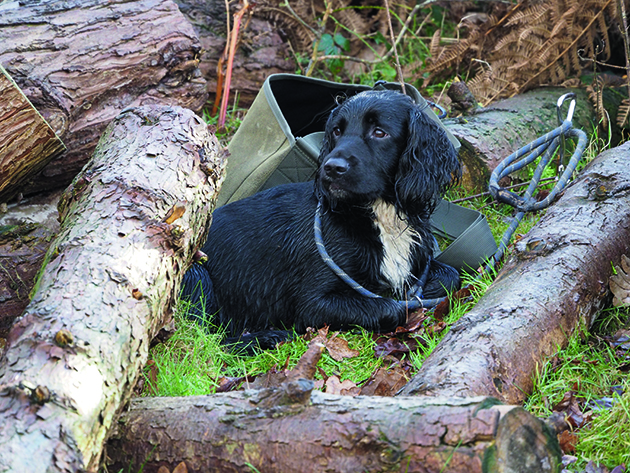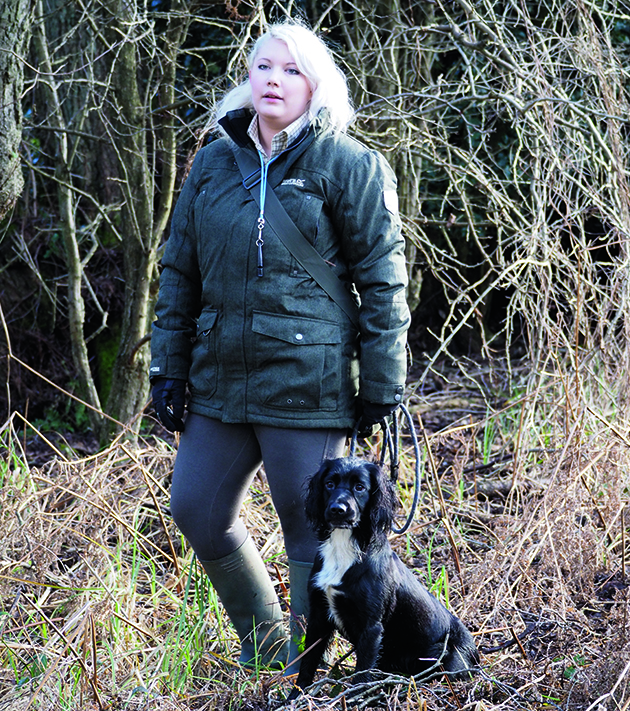Why have crossbred gundogs become so popular on shoots?
There are more crossbred gundogs working on shoots than ever before. David Tomlinson discovers why

Loki the springador
Are we guilty of overlooking crossbred gundogs? Felicity Winters thought so, and was inspired to write to the editor of Shooting Times, urging us to take more notice of the growing number of crossbreeds working on shoots. Felicity has a point: there are certainly far more springadors (springer x Labrador) and sprockers (cocker x springer) now than ever before, almost all the result of deliberate crossing rather than accidental matings. It’s easy to understand why — many pedigree dogs have been closely bred, and the resulting lack of genetic diversity has led to the hereditary diseases of today. Outbreed and you can be reasonably confident of producing healthier dogs.
It was clear that Felicity was very proud of her crossbreed, a springador called Loki, so last month I joined the two of them in the beating line on Max and Jason Whitaker’s Westbrook shoot at Elstead in Surrey. Before we set off for the first drive, Felicity told me why she has specifically chosen a springador.
“I wanted a small, quick, smart dog with stamina and a biddable temperament. To begin with I was considering either a Labrador or a springer spaniel, but I met a Labrador x springer at work and decided that it was exactly what I wanted. I set out and found Loki. She was bred from working parents, with her sire a black Labrador, her dam a black-and- white English springer, and she was one of a litter of 12.”
Residential training
If I hadn’t already known Loki’s breeding I would have guessed that she was a large cocker. She has the typical springador colouring of solid black with a white chest, but otherwise there’s hardly a hint of her sire’s blood. Her appearance is all spaniel, and as I discovered when she started working on the first drive, she works with spaniel-like drive, enthusiasm and speed. We were beating through heavily frosted boggy ground, with thick rushes and grasses, but Loki was totally unfazed. Nor did she take any notice of the shooting ahead of her. She was clearly a hunting dog with a mission.
Felicity, I discovered, comes from a sporting family, and has been shooting since she was six — “mainly rifle shooting with a few clays”. She had always wanted a dog of her own, an ambition she has at least achieved in her early twenties.
A smart little dog
“As soon as I brought Loki home at eight weeks I knew she was a smart little dog, as she was attentive and biddable (learning to sit, lie down, roll over and give a paw in an afternoon) and eager to please.
I took her to puppy classes at 12 weeks but quickly found she was too advanced for the class, thanks to the work I had been doing with her, so we moved on to a higher level more suited to her abilities.
“My teaching included encouraging Loki to search the house for hidden items, something she not only enjoyed doing but was good at. I wanted to train her as a gundog and, as I hadn’t owned a dog before, I wasn’t sure where to start. I sought the help of John Harrison at Byrecoc Gundogs near Guildford. I had met several other gundog trainers, but wasn’t comfortable with their training methods — I think it’s vital to find the right person.
“Loki went away for residential training when she was 12 months old, and returned a couple of months later having learned the basic foundations of being a gundog. John was both supportive and knowledgeable and I still seek his advice from time to time.”
Loki evidently had good recall, something Felicity has worked on from day one, as she worked in close contact with her mistress and was happy to go back on her lead at the end of each drive.
Felicity went on to explain: “This is our first season together, and it’s been a learning experience for us both. I was in the fortunate position of being able to work on several shoots, but I chose Westbrook because it’s small, and I liked the dynamic between beaters and Guns. I was anxious not to overwhelm Loki on a shoot with too many birds. I’ve often been asked whether sending Loki away for training was a good idea, but I’m sure it was. I’m preparing for post-season training now that I know what I need to do.”
Good dogs come in all shapes and sizes
The only frustration that Felicity feels from owning a crossbred dog is the fact that Loki is barred from all competitions run under Kennel Club rules. “There are a few tests we can enter, but no-one seems to appreciate a good hard-working cross, and it seems unfair that people turn their noses up at a dog just because it’s unregistered.
“Good dogs come in all shapes and sizes and FTCh breeding doesn’t guarantee success. Selecting the right dog as a puppy (or even some adults with the correct temperament) and training it properly is always likely to produce a great dog, regardless of pedigree.”
I couldn’t agree more, and having seen Loki in action, I can confirm that she is a splendid working gundog, regardless of her ancestry. I would happily give her a home tomorrow.










